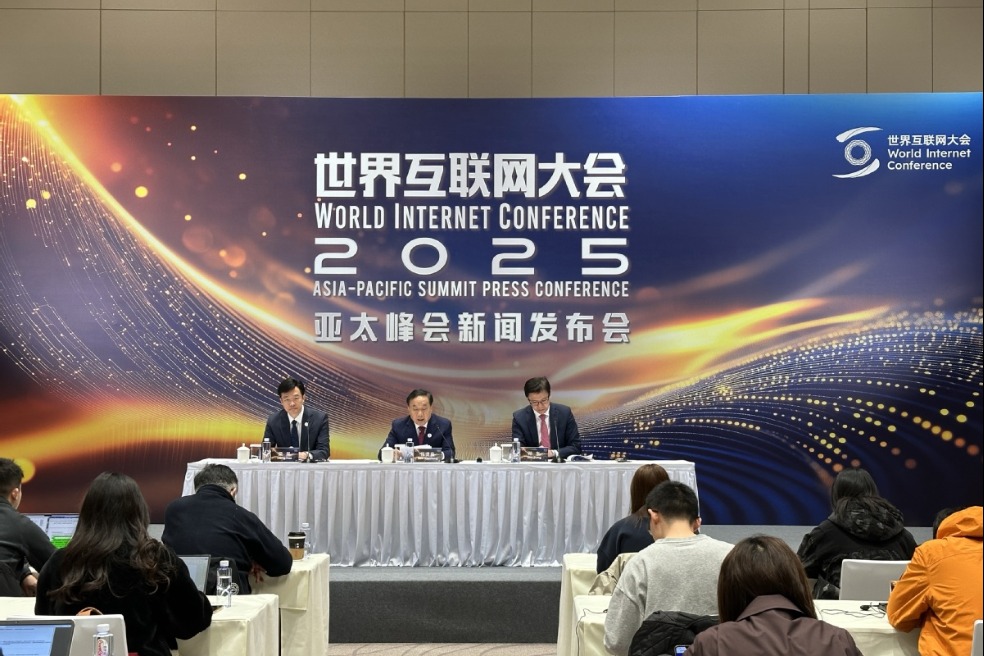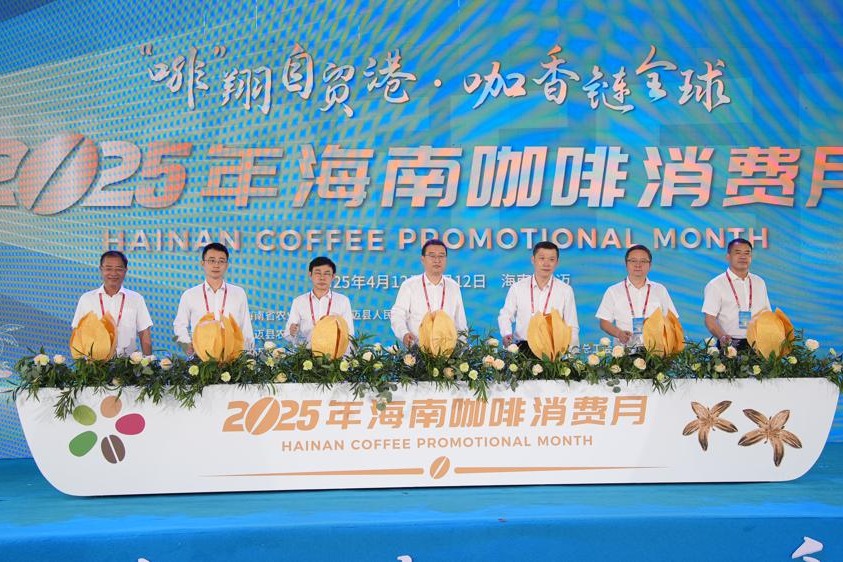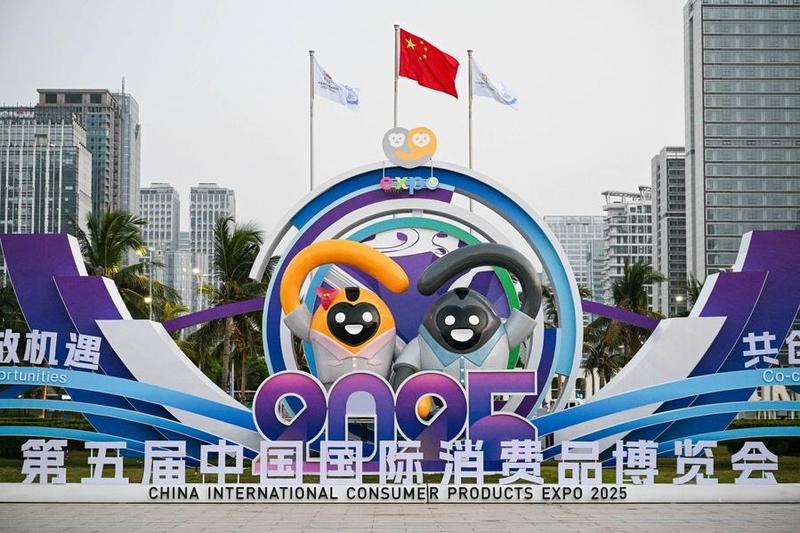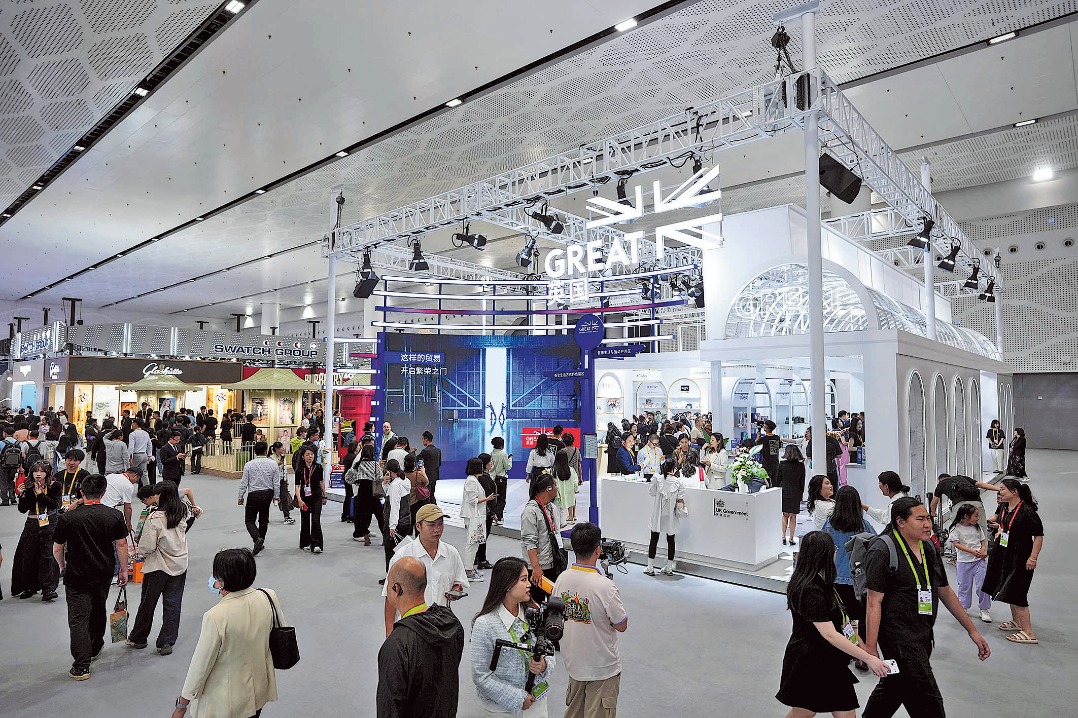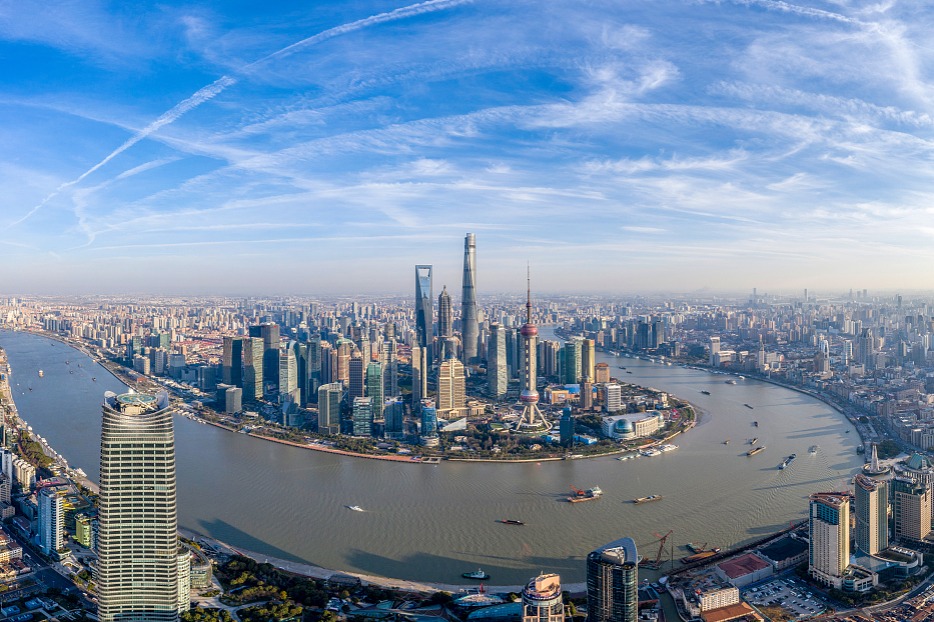Policy steps key to tackling tariffs impact
These will expand domestic demand, solve issues faced by enterprises

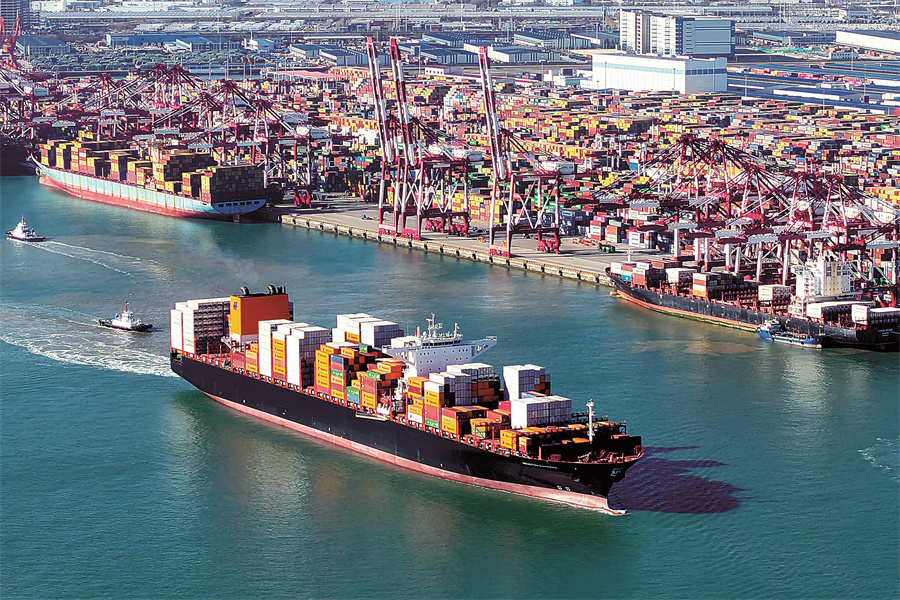
Facing headwinds from the United States' sweeping tariffs, Chinese policymakers should take both short-term policy steps as well as long-term reform measures to expand domestic demand, tackle issues faced by enterprises and boost confidence among consumers and investors, economists from government-backed think tanks said on Friday.
Although China's economy performed better than expected in the first quarter, Wang Yiming, vice-chairman of the China Center for International Economic Exchanges, noted that the broader economy is still facing pressing challenges from the volatile tariff policy of the United States and insufficient domestic demand.
"The foundation for sustained economic recovery is not yet solid," he told a monthly economic meeting held by the China Center for International Economic Exchanges in Beijing on Friday. "Some enterprises still face production and operational difficulties amid tepid price levels."
Looking ahead, Wang said the government should provide both policy stimulus as well as strengthen reform measures to effectively expand domestic demand.
"In the face of external shocks and mounting uncertainties, it is essential to introduce new incremental policies in a timely manner based on evolving circumstances," he said.
"The priority is to take strong measures to comprehensively expand domestic demand and stabilize the fundamentals of the domestic economy … More importantly, breakthroughs must be accelerated in deepening reforms and expanding high-standard opening-up, laying a solid foundation for achieving the annual growth target of around 5 percent this year."
According to the Government Work Report, the country will pursue a more proactive fiscal policy and exercise a moderately loose monetary policy this year, with the projected deficit-to-GDP ratio set at 4 percent for 2025, up from 3 percent last year.
Wang said the country should increase spending on areas related to improving people's livelihoods, stepping up investment to address weak links in fields such as preschool education, healthcare and elderly care, culture and sports, tourism and leisure, and domestic services.
More efforts should also be made to further spur consumption, increase the support for enterprises in difficulties and deepen reforms in key areas. Potential moves will include increasing incomes and relieving burdens on low-to-middle-income groups, offering stronger subsidies for people in difficulties, extending reductions on taxes and fees for micro and small businesses and accelerating the legislative process for private economy promotion law, he added.
At a study session held by the State Council, China's Cabinet, on Thursday, Premier Li Qiang stressed the importance of improving social expectations and coordinating efforts to address risks and challenges while advancing high-quality development.
Policies should be targeted and tailored to address specific issues, he said, adding that the timing of policy introductions should be carefully considered to exert positive influence on market expectations.
He also called for efforts to accelerate the implementation of major strategies and reforms, guide the development of clear and stable market expectations, and improve the protection of the legitimate rights and interests of all business entities.
During Friday's economic meeting, Niu Li, deputy director of the Department of Economic Forecasting at the State Information Center, said he believed China's economy is on track for sustained growth despite facing external challenges, given the nation's ample policy space, its intensified efforts to deepen reforms and opening-up and the strengthening of new growth drivers.
"We will strive to achieve the annual growth target this year," he added. "Facing mounting uncertainties, we also need to accelerate the study of new incremental policy measures."



















